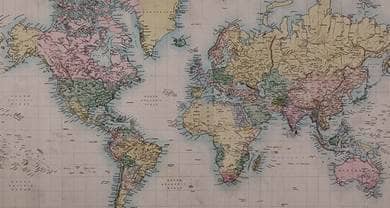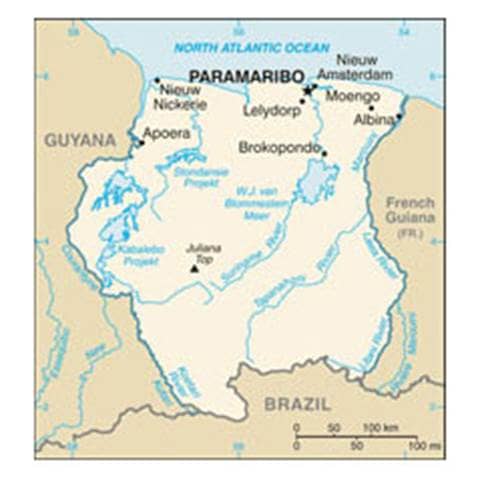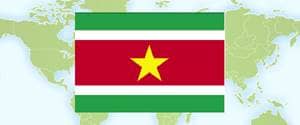- Trending:
- Pope Leo Xiv
- |
- Israel
- |
- Trump
- |
- Social Justice
- |
- Peace
- |
- Love

RELIGION LIBRARY
Suriname

The country has an area of 63,037 square miles and a population of 493,000. According to the 2004 census, an estimated 27 percent of the inhabitants trace their ancestry to the Indian subcontinent, 18 percent identify themselves as Creoles of African descent, 15 percent claim Indonesian ancestry, and 15 percent are of Maroon descent (descendants of escaped slaves). Smaller percentages claim Chinese, Amerindian, Portuguese, Lebanese, or Dutch descent.
According to the most recent official census data (2004), 40.7 percent of the population is Christian, including Roman Catholics and Protestant groups, among them Moravian, Lutheran, Dutch Reformed, evangelical, Baptist, and Methodist; 20 percent is Hindu; 13.5 percent is Muslim; and 3.3 percent follow indigenous religions. Baha'is, Jews, Buddhists, members of The Church of Jesus Christ of Latter-day Saints (Mormons), and adherents of the World Islamic Call Society are also present.
Indigenous religions are practiced by the Amerindian and Afro-descendant Maroon populations. The Amerindians, concentrated principally in the interior and to a lesser extent in coastal areas, practice shamanism through a medicine man (piaiman). Maroons, who inhabit the interior, worship nature through a practice that has no special name. Maroons, as well as some Creoles in urban areas, worship their ancestors through a rite called wintie. Citizens of Amerindian and Maroon origin who identify themselves as Christian often follow indigenous religious customs also, with the tacit approval of their Christian church leaders.
There is a correlation between ethnicity and religious faith. Many political parties, including six of the eight governing coalition parties, have strong ethnic ties, and members tend to belong to the same religious group. For example, within the governing coalition, the majority of the membership of the mostly ethnic-Creole National Party of Suriname (NPS) is Moravian, members of the mostly ethnic-Indian United Reformed Party are Hindu, and those of the mostly ethnic-Javanese Pertjaja Luhur Party tend to be Muslim. However, parties have no requirement that political party leaders or members adhere to a particular religion. For example, the President of the country, who is also the leader of the NPS, is a practicing Catholic.
There is no direct correlation between religious affiliation and socioeconomic status; however, those who practice indigenous religions in the small villages of the interior generally have a lower socioeconomic status. With the exception of those following indigenous practices, religious communities are not concentrated in any particular region.
| Population | Population (2009 est.) 481,267 |
| Religious Demographics | Hindu 27.4%, Protestant 25.2% (predominantly Maravian (Protestant)), Roman Catholic 22.8%, Muslim 19.6%, indigenous beliefs 5% |
| Ethnic Groups | Ethnic Groups Hindustani (also known locally as "East Indians"; their ancestors emigrated from northern India in the latter part of the 19th century) 37%, Creole (mixed white and black) 31%, Javanese 15%, "Maroons" (their African ancestors were brought to the country in the 17th and 18th centuries as slaves and escaped to the interior) 10%, Amerindian 2%, Chinese 2%, white 1%, other 2% |
| Languages | Languages Dutch (official), English (widely spoken), Sranang Tongo (Surinamese, sometimes called Taki-Taki, is native language of Creoles and much of the younger population and is lingua franca among others), Caribbean Hindustani (a dialect of Hindi), Javanese |
| Country Flag |  |










